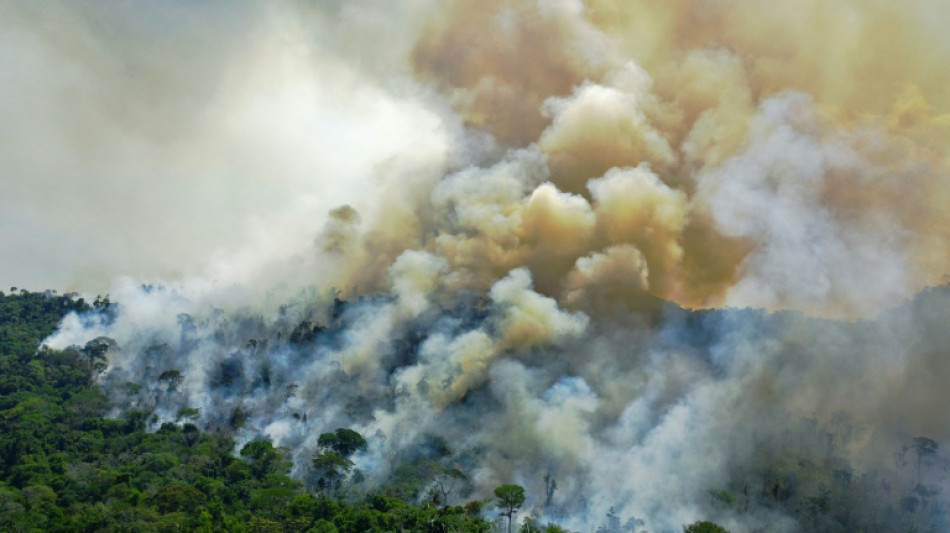

Amazon forests save $2bn in pollution healthcare: study
Rainforests on Indigenous lands in Brazil's Amazon protect millions of people from heart and lung diseases by absorbing pollution and save $2 billion a year in healthcare costs, researchers said in a study published Thursday, urging increased protection against deforestation.
The article in the journal Communications Earth & Environment measured the forests' capacity to absorb smoke pollution from fires that are intentionally started to clear land for farming.
Combined analysis of 10 years of data on disease, forest cover and pollution found that each hectare of forest burned generates health costs of $2 million (1.8 million euros) a year due to lung and heart infections, they said.
They estimated that forests in Indigenous territories by absorbing pollution particles prevent a potential 15 million smoke-related respiratory and cardiovascular infections per year.
Inhabited areas with large areas of forest had fewer infections than those with low cover, with particulate matter in the air reduced by the greenery, they wrote.
Lead author Paul Prist of the New York-based non-profit EcoHealth Alliance told AFP that to reduce the threat from fires it was necessary "to reduce deforestation, strengthen environmental legislation, increase the penalty for those who deforest and burn the forest and strengthen the agencies responsible for the management and control of fires."
The Amazon region is home to half of the world's remaining tropical forests. Indigenous territories make up more than a fifth of its land.
Brazil's leftist President Luiz Inacio Lula da Silva took office this year vowing to reverse environmental destruction under his far-right predecessor, Jair Bolsonaro.
But Brazilian government figures released this year showed deforestation in the Brazilian Amazon hit a record high in February.
Under Bolsonaro, average annual deforestation in the Brazilian Amazon surged by 75 percent compared to the previous decade.
(V.Blanchet--LPdF)




